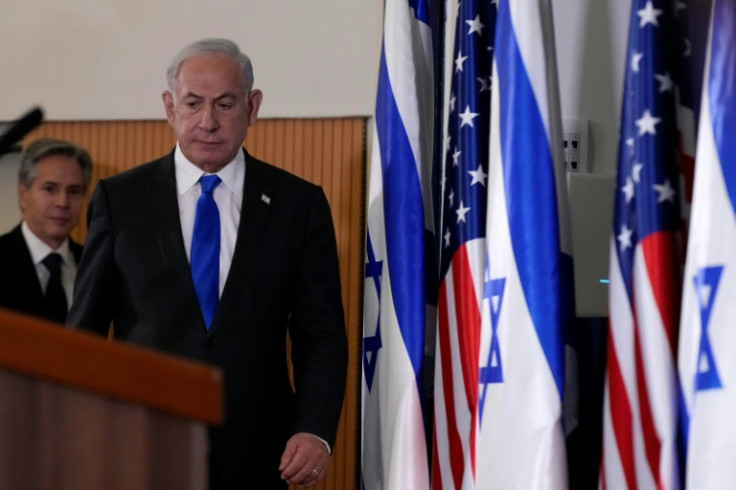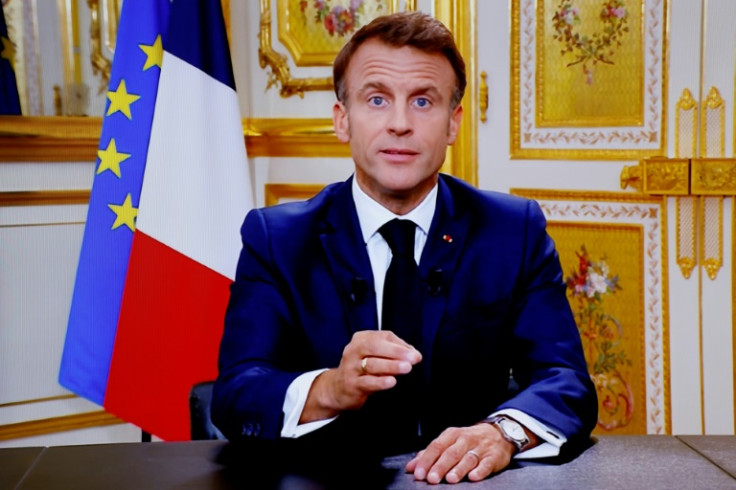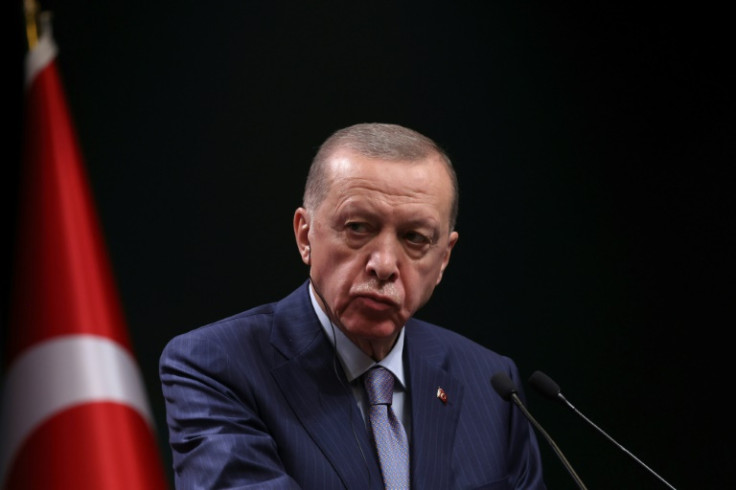Hamas Hostage-taking Presents Israel With Familiar But Tough Dilemma

Israel has throughout its history been targeted by hostage-taking in standoffs resolved by both force and diplomacy, but the mass seizure of citizens by Palestinian militant group Hamas presents the authorities with an unprecedented quandary.
Estimates point to around 150 women, children and men being held by Hamas in its Gaza stronghold after its attack on Israel on Saturday. Some who say their loved ones are in mortal have posted images on social media.
The Ezzedine al-Qassam Brigades, the armed wing of Hamas, warned that "every targeting of our people without warning will be met with the execution of one of the civilian hostages".
The issue is all the more sensitive for Israel's government as it contemplates a ground operation in Gaza to potentially oust the Hamas authorities that would place the hostages at even greater risk.
Turkish President Recep Tayyip Erdogan, who has frequently hosted Hamas leaders for talks, has launched efforts for their release, according to Turkish sources, while the International Committee of the Red Cross (ICRC) says it has been in touch with both sides to facilitate any release.
French President Emmanuel Macron said on Thursday that Paris would do "everything" to secure the release of the hostages, whatever their nationality.
But with Israel still reeling from attacks that killed hundreds, and launching retaliatory air strikes that have killed hundreds of Palestinians, the prospects for diplomacy appear bleak for now.
Of all the hostage situations faced by Israel in its past, this one is unique due to the numbers involved and the presence of civilians, according to experts.
"This is a first", said Etienne Dignat, professor at Sciences Po university in Paris and author of a book on hostage-taking, describing the situation as "unprecedented in its scale and its nature".
"Israel is used to 'trading' men and soldiers. Here, there are civilians, many of them women, which constitutes a real symbolic break," he said.
The country's collective memory has been scarred by hostage-taking going back to the Munich 1972 Olympic Games when an attack by Palestinian militants resulted in the deaths of 11 Israeli athletes and their coaches.
In 1976, Israeli forces freed hostages held by Palestinian militants on a plane that had been diverted to Entebbe airport in Uganda.
More recently in 2004, Lebanese Shiite group Hezbollah freed the Israeli businessman and former army colonel Elhanan Tannenbaum and the bodies of three Israeli soldiers in a swap that saw almost 450 prisoners released by Israel.
Two years later in 2006, the kidnapping of Israeli soldier Gilad Shalit by Palestinian militants triggered five months of military operations in Gaza. He was released five years later for 1,027 Palestinian prisoners by Israel.
It was the first time in 26 years that a captured Israeli soldier had been returned alive.
The Shalit case however "fuelled a very strong debate in Israeli society on the concessions that should made" to free hostages, said Dignat, with Israel in particular creating a commission responsible for setting red lines in negotiations.
"In particular, it was deemed necessary to stop exchanging living people for corpses," he said.
The remains of Ron Arad, an Israeli military pilot lost in action over Lebanon in 1986 and believed to have been held by Shiite groups there and now presumed dead, have never been returned and his family have indicated they are not interested in such exchanges.
Israel's ambassador to France Raphael Morav said Thursday that past exchanges were "with hindsight perhaps a mistake".
"These 1,027 prisoners who returned to Gaza (in 2011) were not going to start a family and live peacefully. It was to return to the cycle of terrorism," he told RFI radio. Among them was Yahya Sinwar, now Hamas's leader in Gaza.
With the number of Israelis killed now above 1,200 and the government facing immense pressure at home over the apparent failure of Israel's renowned intelligence services, the authorities will want the hostages freed and the toll to rise no further.
"The Israelis have said that the hostages will not affect their calculations, but that is likely untrue," said Jon Alterman, director of the Middle East Program at the Center for Strategic and International Studies (CSIS).
"At the same time, Israel is not likely to forgo its determination to have a comprehensive ground operation in Gaza that pushes Hamas from power because of the hostages," he added.
Analysts said that Hamas for its part was hoping for major concessions by taking such a large number of hostages, including a mass prisoner release of the around 5,000 Palestinian prisoners held in Israeli jails, as well as the end of Israel's blockade of Gaza, where Palestinian officials have said more than 1,400 people have been killed in the ongoing strikes.
Independent analyst on the Middle East Eva Koulouriotis said Israel was not prepared to give such concessions and had two options -- either a ground incursion into Gaza or raising the level of military pressure and blockade until Hamas agrees to release all the hostages.
"A ground incursion would be of course extremely dangerous for the safety of the hostages," she said.


© Copyright AFP 2024. All rights reserved.







